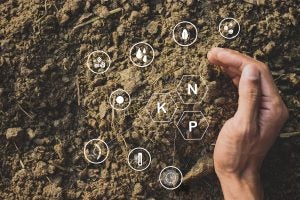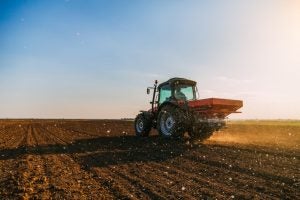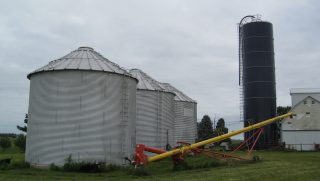Whether you’re a large-scale organic producer, a midsize conventional farmer, or a hobbyist gardener, you probably appreciate the use of fertilizer to grow healthy plants. It just makes sense that anyone growing plants would want to provide them with all the nutrients they need to reach peak growth.
But if none of those labels describe you, then you might not know much about it. And you may even believe disinformation about it. From context, that describes the commenter of this gem on a Reddit forum:
“I’ve read that a lot of farmers will just dump as much fertilizer as they can because it’s easier than calculating how much they actually need, and the runoff causes algae blooms and f*** knows what else.”
Well actually, it doesn’t really work that way.
Let’s go over some basics about fertilizer: What it is, why farmers use it, and whether it’s misused.
What is fertilizer?
The dictionary definition is straightforward: natural or artificial substance containing the chemical elements that improve growth and productiveness of plants. But reality is a bit more complicated.
Plant growth relies on a spectrum of nutrients obtained from various sources. Plants can acquire carbon, hydrogen, and oxygen from air and water. The other nutrients come from the soil. Each nutrient serves specific functions critical for plant growth and development, from promoting leafy growth to enhancing root formation.

The major nutrients are nitrogen, phosphorus, and potassium. These are the primary components of fertilizers. All three are crucial for fundamental plant functions. Plants also need calcium, magnesium, and sulfur, though usually in smaller amounts than the macro nutrients. Finally, there are micronutrients that play vital roles in ensuring plant health and vitality. These include boron, copper, iron, manganese, zinc, chlorine, and cobalt.
Fertilizers are available in various forms, including natural, commercial, organic, liquid, dry, and compost. Each formulation serves specific purposes and offers unique benefits.
How do farmers use fertilizer?
The way farmers use fertilizer depends on a number of factors, not least of which include soil quality and the type of crop. Some plants require more nutrients than others, while some can restore nutrients to the soil.
That’s one reason you often see corn and soybeans rotated in fields. Corn requires a significant amount of nitrogen, and farmers apply these each year. But soybeans can capture nitrogen in the air and store it in its roots. When it dies, the soil retains the nitrogen.

The soil those plants grow in are equally important, and have spurred the recent focus on soil health. Farmers can promote nutrient-dense soil by leaving plant material in the field. Composts, derived from once-living materials, can nourish soil microorganisms and promote plant growth.
Do farmers overuse fertilizer?
To answer the comments made by the Reddit user, no. Farmers don’t consistently use fertilizers in indiscriminate amounts just to avoid having to do any math. The common sense explanation is the most straightforward: fertilizer is expensive, especially now following Russia’s invasion of Ukraine. Because the profit margins tend to be thin in agriculture, such use of fertilizer would literally be throwing money down the drain.
Here’s the other thing: plants can only utilize so many nutrients. Over-applications are literally a waste of money because at a certain point, the fertilizer doesn’t actually do anything. In fact, too much fertilizer can actually damage plants, especially those with flowers or fruit. So indiscriminately applying fertilizer is detrimental to crops.

Many farmers have soil testing done to identify which nutrients the soil is deficient in. They can then precisely apply the correct nutrients to address those deficiencies. With modern GPS systems, farmers have real-time diagnostics that can show where in a field yields are lower, allowing them to pinpoint exactly what that part of the field needs.
Fertilizers are extremely important in modern agriculture. They provide essential nutrients for plant growth and vitality, and they allow us to increase yields without turning up new fields. By combining scientific advancements, farmers can better apply fertilizers in a way that minimizes environmental impacts.
Amanda Zaluckyj blogs under the name The Farmer’s Daughter USA. Her goal is to promote farmers and tackle the misinformation swirling around the U.S. food industry.



